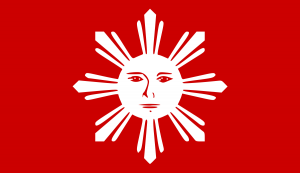Difference between revisions of "Language/Tagalog/Vocabulary/Days-of-the-Week"
| Line 1: | Line 1: | ||
[[File:tagalog-days-of-the-week-vocabulary.jpg|thumb]] | [[File:tagalog-days-of-the-week-vocabulary.jpg|thumb]] | ||
[[File:Tagalog-Language-PolyglotClub.png|thumb]] | |||
Listed below are the Tagalog words for the '''days of the week'''. '''Linggo''' can also be used as a noun for "week". | Listed below are the Tagalog words for the '''days of the week'''. '''Linggo''' can also be used as a noun for "week". | ||
Revision as of 13:24, 13 September 2021
Listed below are the Tagalog words for the days of the week. Linggo can also be used as a noun for "week".
| Linggo | Sunday |
| Lunes | Monday |
| Martes | Tuesday |
| Miyerkules | Wednesday |
| Huwebes | Thursday |
| Biyernes | Friday |
| Sabado | Saturday |
Spanish speakers can find the above words to be familiar, because they are native versions of the Spanish words for the days of the week, i.e. Miércoles = Miyerkules; Jueves = Huwebes. During the colonization of the Philippines under the Spanish Crown, locals adopted the foreign words for everyday use by substituting foreign letters like 'J' and changing the spelling to look more Tagalog.
The only difference is the Tagalog word for Sunday, which is Linggo. This could be the case of the shortening of the Spanish Domingo=Mingo=Minggo and later on the letter "M" changed to "L". Thus, it becomes Linggo. Since, Linggo (Sunday) is very important to Filipinos because of their Christian heritage influenced by the Spaniards, the seven-day week is also called Linggo. One week is "Isang Linggo" in Tagalog. Last week is "Nakaraang Linggo" and so on.
Practice Phrases
| Ngayon ay Martes | Today is Tuesday |
| Ngayon ay Huwebes | Today is Thursday |
| Bukas ay Biyernes | Tomorrow is Friday |
| Bukas ay Sabado | Tomorrow is Saturday |
| Kahapon ay Linggo | Yesterday was Sunday |
| Kahapon ay Miyerkules | Yesterday was Wednesday |
Notice that 'ay' can be used both for the present and past tense in the Filipino language.
Authors

